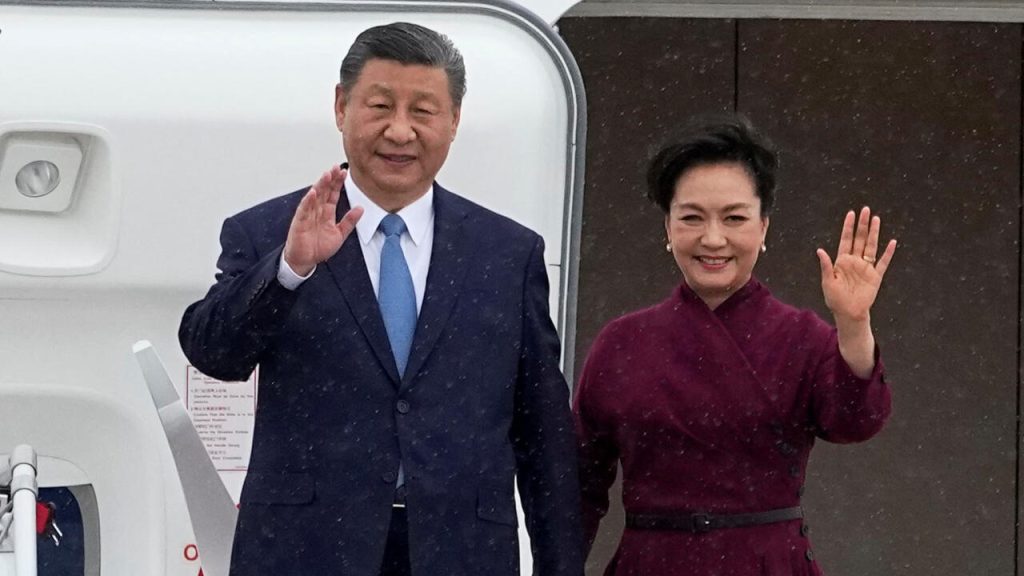Chinese President Xi Jinping arrived in France on Sunday for a state visit hosted by Emmanuel Macron, during which the French leader plans to caution his counterpart against supporting Russia in the Ukraine conflict.
Xi’s visit, marking 60 years of diplomatic relations between France and China, signals his first trip to Europe since 2019. This visit also includes stops in Serbia and Hungary.
Choosing France as the primary European destination for his visit underscores the positive dynamics in Sino-French relations, particularly since Macron’s state visit to China in April 2023. It also acknowledges Macron’s influence as a key EU power broker.
Accompanied by his wife, Peng Liyuan, Xi was greeted at Paris Orly airport by Prime Minister Gabriel Attal.

On Monday, Xi is scheduled for talks in Paris, including discussions with EU Commission chief Ursula von der Leyen, followed by a state banquet hosted by Macron at the Elysee. Macron plans to take Xi to the Pyrenees mountains on Tuesday for private discussions in a less public setting.
In an op-ed for Le Figaro, Xi expressed a willingness to work with the international community to find solutions to the Ukraine conflict, emphasising that China is not directly involved but aims for peace and stability in Europe.
A primary focus for Macron will be cautioning Xi against backing Russia amid concerns that Moscow may be using Chinese equipment in arms production. Macron emphasised the need for China’s support in maintaining international order and called for Europe to defend its strategic interests in economic relations with China, citing concerns over trade rule violations.
While Macron’s stance on China has faced criticism from some EU allies, particularly regarding Taiwan, he faces pressure from rights groups to address human rights issues, including the treatment of Uyghur Muslims and jailed journalists.
Despite the grand welcome and discussions planned, analysts doubt Macron’s ability to sway Xi significantly, especially given Xi’s choices of Serbia and Hungary, perceived as more sympathetic to Moscow.

